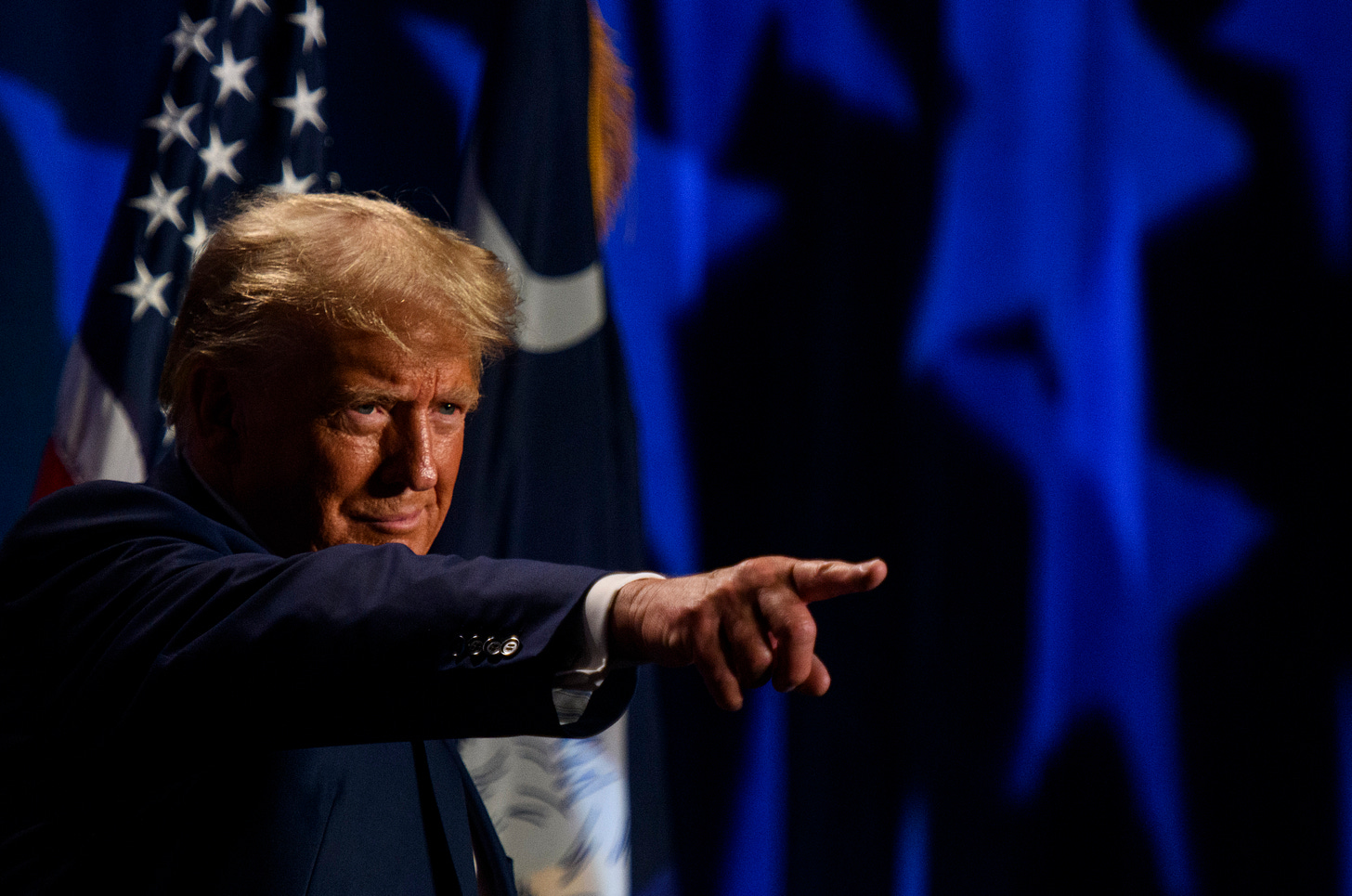The Enduring Mystery of the Trump Voter
Eight years since the Orange Man launched his first presidential campaign, we’re still struggling to understand what the hell is happening

I quite liked David Brooks’ New York Times column last week—the one in which he invited his fellow well-educated, meritocratically successful readers living mostly in the country’s biggest, most economically dynamic and culturally dominant metro areas to imagine that “we’re the bad guys” in the story of why Donald Trump remains so powerful within the Republican Party, despite (or perhaps because of) his mountain of legal troubles.
But almost immediately, I noticed on Twitter X that at least some of the well-educated, meritocratically successful people Brooks addressed in his column didn’t appreciate it at all. I found that sadly ironic, since one of Brooks’ goals in writing the piece was to inspire a few minutes of soul-searching about our present situation. I expressed this reaction online, and thereby got sucked into a day’s worth of bickering with people who criticized the column for reviving early takes on Trump’s rise that attributed it to “economic anxiety” on the part of the downwardly mobile in the Midwest and other provincial parts of the country.
Those well-educated, meritocratically successful people strongly prefer moving the discussion to that ground. They find it appealing to do so because the economic and political data is mixed at best on the question of Trump’s appeal, and because in 2020 Joe Biden did better than Trump with middle-class voters. Plus, once the role of economics is dismissed, a path remains open to an explanation this audience considers vastly more compelling—namely, the likelihood that the most important variable in explaining Trump’s appeal is his supporters’ bald-faced racism and white supremacy.
The problem with this whole line of argument, however, is that Brooks’ column was not one-dimensionally about economic class. It was about something broader than that—about status and privilege, about which political and cultural institutions set the tone in our country, and about which groups of Americans ascend to the commanding heights of these leading institutions. Most of all, it was a column about the implications of elite universities becoming the credentializing gatekeepers for entry into this ruling class.
A contractor from rural Ohio might earn a good living and own a nice home, cars, and a boat. But he will still feel very far from the country’s power centers, where people with very different political, moral, and cultural convictions and attachments run the show—often pretty poorly, in the eyes of this contractor and his family and friends. Why are those people in charge? Do they really merit their power and influence? Why is the system rigged to reward them over and over again—after Iraq, after Afghanistan, after the financial crisis, after overrun borders and outsourced jobs and COVID miscalculations and surging violent crime and “gender-affirming care” on demand for minors and rampant homelessness and inflation and spiking interest rates and a multitude of inaccurate mainstream media stories?
In Search of Another Perspective
The reason I liked Brooks’ column is that I appreciate efforts at inspiring self-criticism. Like Brooks, I’m a member of the class he’s trying to make uncomfortable. I have a Ph.D. I think the populist right’s criticism the country’s elite is arbitrarily narrow (Why doesn’t it include Fox News, Charles Koch, Elon Musk, and the Heritage Foundation?) and exaggerated (Is it possible our expectations have risen unrealistically high? Governing through the deadliest pandemic in a century is hard!). And when that criticism expands to become a full-spectrum indictment of liberal democracy, I think it becomes extremely dangerous.
And don’t even get me started on the rank absurdity of a grassroots movement against elite self-dealing and incompetence being led by the likes of the thoroughly corrupt and moronic Donald Trump.
Yet, despite it all, the fact that a sizable share of the population buys into at least some version of a story about a calcified, self-perpetuating, and inept meritocratic elite gives me pause. I fully recognize that Republicans use the line to gain votes and mobilize voters, so I don’t usually take it very seriously when I hear it deployed for political point-scoring. But I also hear it from others, sometimes people who have no clear dog in our country’s partisan fights. I pay closer attention when I hear such criticisms emanating from them.
A good example is the novelist and journalist Walter Kirn.
Keep reading with a 7-day free trial
Subscribe to Notes from the Middleground to keep reading this post and get 7 days of free access to the full post archives.




